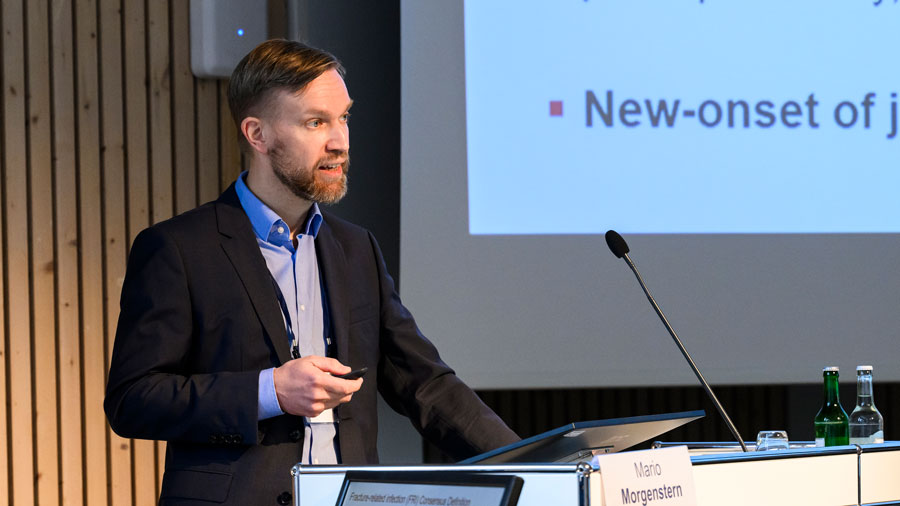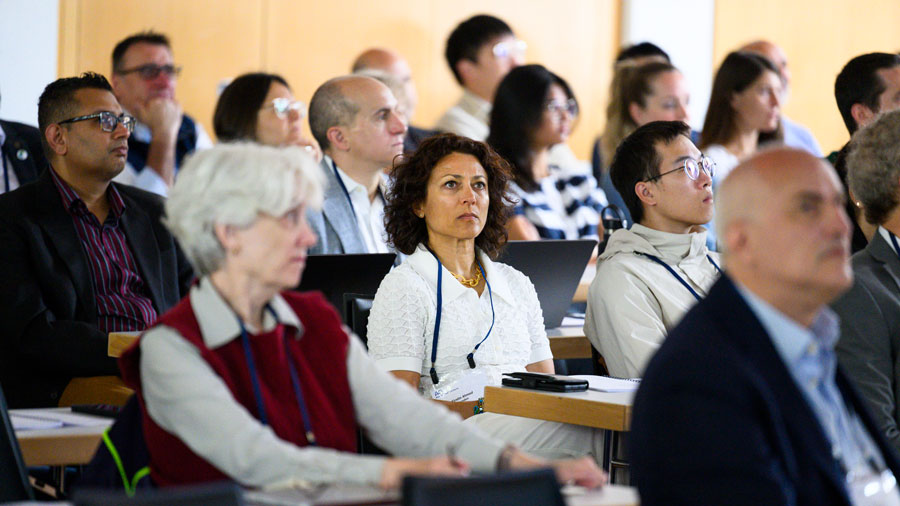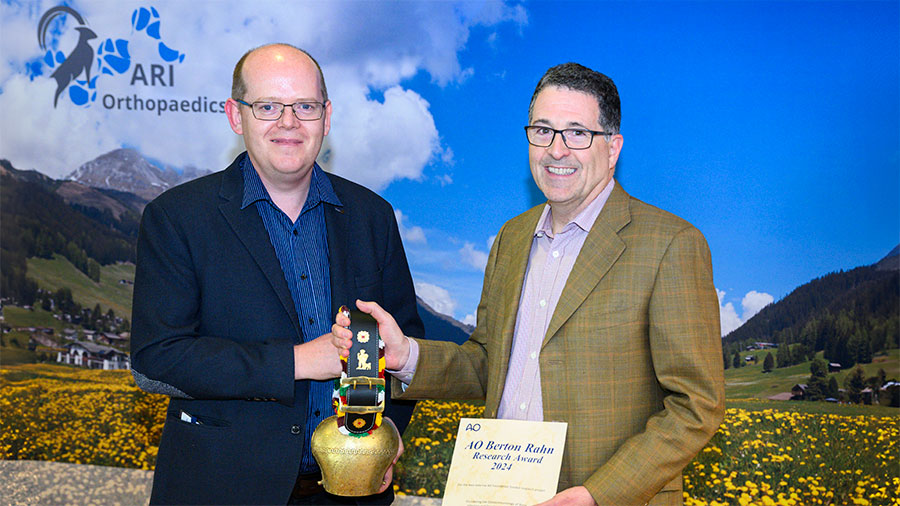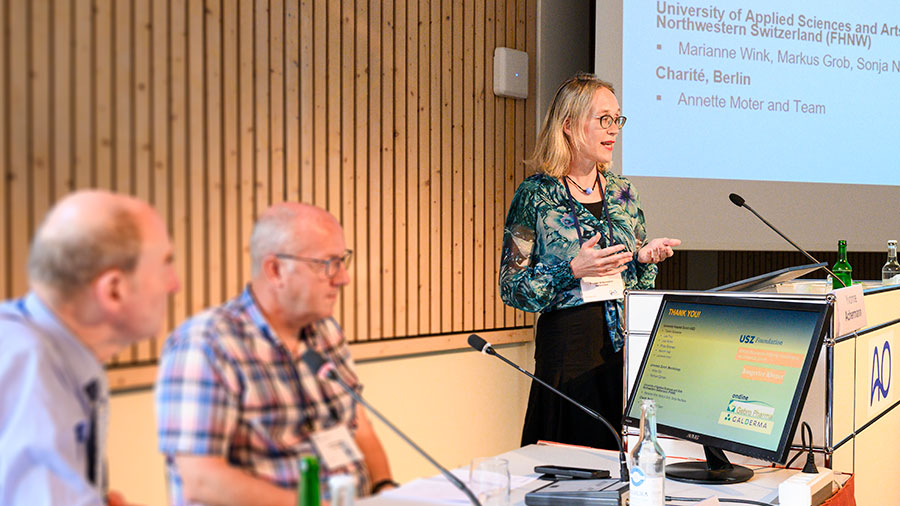The first ARI Orthopaedics conference focused on the latest findings on orthopedic infection
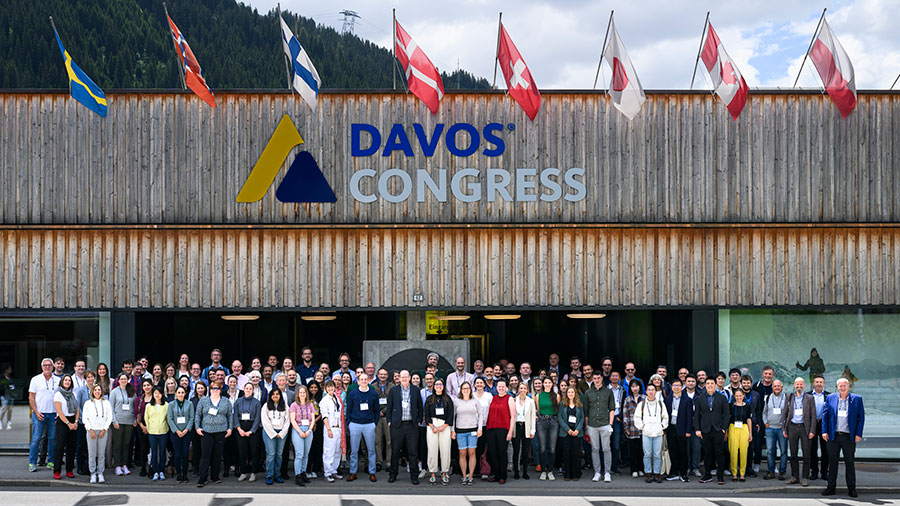
As of this year, eCM Conferences has been rebranded to ARI Orthopaedics. The annual ARI Orthopaedics conference will once again be an annual event hosted by ARI under ARI Director Geoff Richards' leadership. The 2024 edition was organized by Fintan Moriarty, Leader of ARI’s Infection Biology team, as well as ARI postdocs Marco Chitto and Claudia Siverino.
Conference organizer Fintan Moriarty looked back at a successful event: “The theme of the ARI Orthopaedics meetings will change for each annual meeting, and it was a privilege for us to host the first meeting on the topic of orthopedic infection. The opportunity to build a keynote speaker roster from the international experts working in this field was really a pleasure, and we have not only brought many world-renowned experts to the meeting, but also many old friends were present. The clinicians and researchers focused on orthopedic infection do not often get to overlap at the same conference, so this week was a great opportunity for all attendees.”
With a limited number of 150 seats available, the conference was fully booked. Renowned experts from all over the world presented their latest findings on orthopedic infection at the conference, with topics including clinical challenges, including antibiotic resistant, recurring infections as well as the specific requirements of bone reconstruction after debridement of infected tissues. Some emerging concepts in the field of orthopedic infection like bacteriophage therapy and nanotechnology were introduced, supplementing the more established fields of antimicrobial therapy, drug delivery and biofilm biology.
ARI Director Geoff Richards said that he was happy to have welcomed the great mix of clinicians, scientists, and infection disease specialists from all over the world. He was keen to point out opportunities for future collaborations, both internationally and at his own doorstep: “To be introduced to new fields in infection was intriguing. I wasn’t aware of the microbiome in the intervertebral disc and how it may be affected by the leaky epithelial barrier—that I was aware of—until listening to Prof Rajasekeran’s presentation. This gives us a huge opportunity for further research and to hopefully initiate a close collaboration with Prof Cezmi Akdis, an internationally renowned specialist on the epithelial barrier, who happens to work right here in Davos, at the Swiss Institute of Allergy and Asthma Research.”
Several speakers highlighted the urgency of bringing new and better treatment options to the clinic. Mario Morgenstern, senior physician at the Center for Musculoskeletal Infections, Universitätsspital Basel, Switzerland, stressed that the infection rate in complex lower leg fractures is currently at around 30 percent, and Yvonne Achermann, senior physician in internal medicine and infectious diseases at Spital Zollikerberg, Switzerland, pointed out that as little as around 100 bacteria are needed to infect a prosthesis, and that even when correctly applied, skin antisepsis is only 50% effective.
Presenting his lecture on how infection changes non-union, Hamish Simpson, Professor of Orthopaedics and Trauma, University of Edinburgh, United Kingdom, was hopeful that despite the major challenges of orthopedic infection, this year’s conference could accelerate and intensify research in the field and deliver new and better treatment options in the near future: “I sincerely hope that together we can help these unfortunate patients who often suffer great hardship and describe their lives ‘being on hold’ until their non-union is healed. I believe that the work presented at this meeting will enable us to improve procedures to achieve less morbidity and a faster return of function in our patients.”


